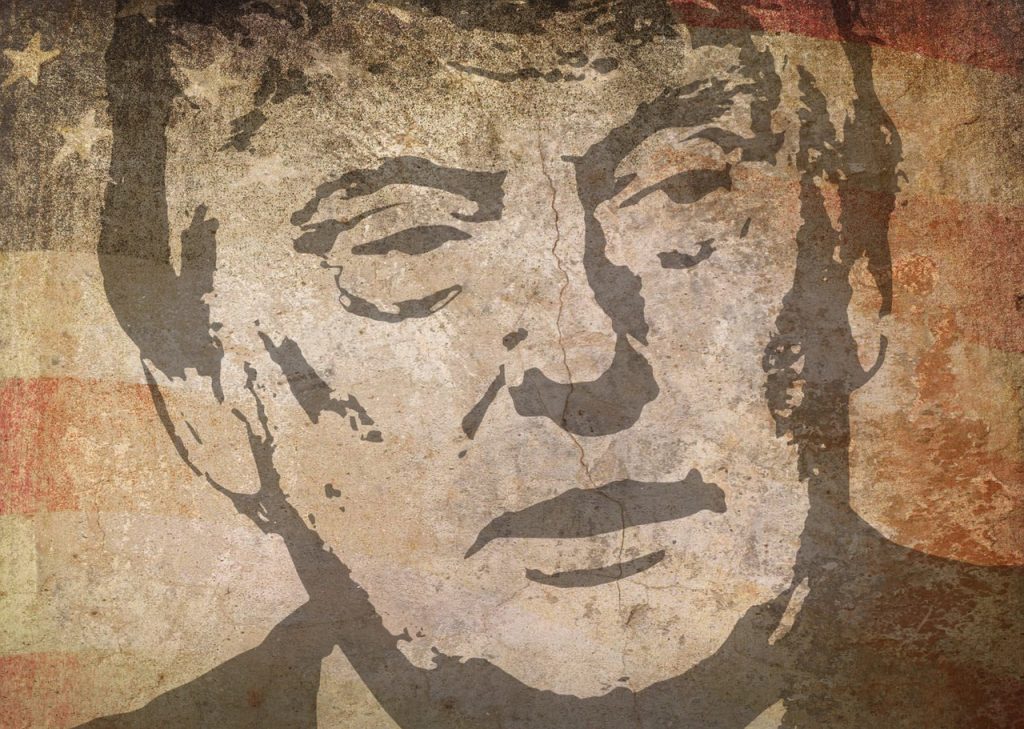Theses on Trump and the 2016 Election

As an American citizen living abroad, I have been reflecting on the course of the election and its outcome. Here are some theses on the process.
§ However immersed they are in the world of politics, Americans still disapprove of the political. Therefore, lack of experience is no discredit to a candidate.
§ Trump succeeded by reducing politics to entertainment, appealing to something Americans do like in order to enlist them in something they dislike.
§ The broadcast media in particular were complicit in this project. Delighted with the ratings boost, they offered Trump whatever airtime he wanted.
§ The competence message does not win elections. Hillary Clinton tried this in 2008 and again in 2016.
§ The election demonstrated the continued power of political speech. Trump had all the best lines. Hillary’s one memorable phrase was the coinage about the ‘basket of deplorables’ which boomeranged on her. Memes like ‘Crooked Hillary’ and ‘Lock her up’ proved surprisingly effective.
§ Trump’s campaign showed the power of negative thinking. ‘Make America Great Again’ was ostensibly a positive message, but premised on American decline. This was not the ‘Morning in America’ mantra of Ronald Reagan.
§ The presidential system does not favour female candidates. It is much easier for a woman to become head of government in a parliamentary system, by virtue of becoming head of party. Parties have their own electoral procedures which do not depend on a popular vote, and the forming of a government depends on which party or parties achieve the most seats.
§ We should not be surprised by Trump’s victory as an expression of where the country is now. His persona resonates with the emergence of UFC, the predominance of Marvel comic book productions at the movie box office, and the displacement of baseball by football as the major American sport: these are cults of outsized self-assertion and aggression.
§ Trump succeeded in part by pursuing the politics of equivalence. He positioned the non-disclosure of Hillary’s emails as equivalent to and a justification for non-disclosure of his tax returns. He countered the disclosure of his boasts of sexual assault (caught on tape with Billy Bush) with Bill Clinton’s record, which he claimed was worse. Bill Clinton was not, of course, a candidate. Clinton was accused of sexual harassment by Paula Jones and settled out of court, but this was not a case of assault. Presumably Clinton’s alleged multiple dalliances were supposed to cancel out Trump’s self-confessed serial assaults.
§ Trump has engaged in a hostile takeover of America. His manner of engaging in running the country will not differ from his approach in business, which is bullying, belligerent, and belittling (witness his treatment of opponents in building his Aberdeenshire golf course, like the farmhouse owner Michael Forbes, whom he reviled, or Alex Salmon, then leader of the SNP, whom he berated after falling out over the former First Minister’s support for windfarms off the coast).
§ The thinnest-skinned candidate ever to run for office has been elected. Presidential politics does not suit the thin-skinned (remember Nixon).
§ Trump has absorbed the lesson, established by George W. Bush, of appealing only to your supporters. Politics is a zero sum game and there is nothing gained by courting the opposition. Trump’s base is interesting because it crosses party lines, making him a threat to both establishment Republicans and Democrats.
§ When Trump takes office he will not only be head of government but also head of state. This will complicate relations in numerous ways since the head of state is deserving of respect. The inherently adversarial role of the press will thus face a double challenge, with criticism of the President potentially coming off as disrespectful. See the recent exchange between Trump and CNN White House correspondent Jim Acosta, who challenged him at his press conference but will find it far harder to do so once Trump takes office.
§ The fact that Trump did not did not promise he would accept the legitimacy of the election were he defeated is an ongoing problem. He cannot therefore complain when Rep. John Lewis questions his legitimacy. Trump is author of his own misfortune in this context.
§ The ‘drain the swamp’ message always resonates with the electorate, but now we’re witnessing the state hijacked to personal interests in the name of populist reform.
§ Closing questions – when Trump becomes president:
- What will he do the first time there is a mass shooting?
- What will he do the first time a police officer is killed in an ambush?
- What will he do the first time an unarmed African American person is shot by police?
Daniel Carey
Daniel Carey, MRIA, is Director of the Moore Institute for the Humanities and Social Studies at NUI Galway and Professor of English in the School of English and Creative Arts. He is a Vice-President of the Royal Irish Academy and a board member of the Irish Research Council. He was Chair of the Irish Humanities Alliance 2014-16.

